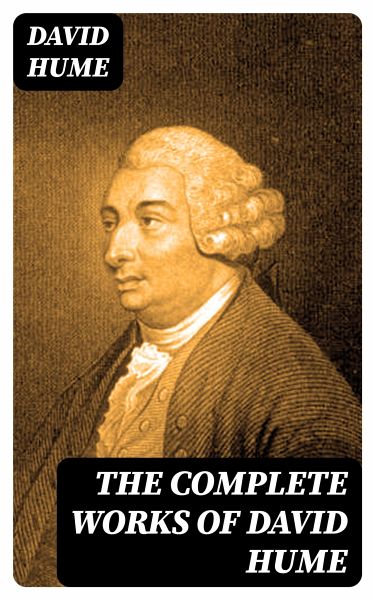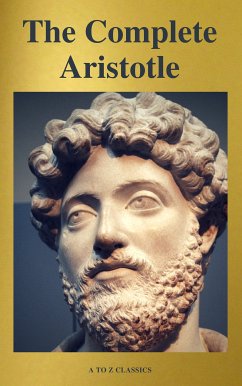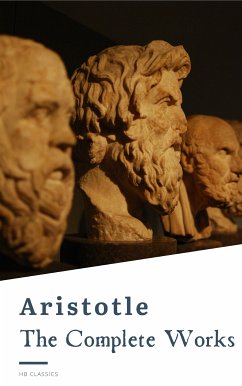
The Complete Works of David Hume (eBook, ePUB)

PAYBACK Punkte
0 °P sammeln!
The Complete Works of David Hume is an extensive compilation encompassing the philosophical writings of one of the Enlightenment's foremost thinkers. Hume's prose navigates the realms of empiricism, skepticism, and morality with a clarity that reveals his deep engagement with contemporary philosophical debates. The collection includes his seminal works such as A Treatise of Human Nature and An Enquiry Concerning Human Understanding, elaborating on topics like human cognition, the nature of causation, and the foundations of ethics, all framed within Hume's characteristic witty and engaging styl...
The Complete Works of David Hume is an extensive compilation encompassing the philosophical writings of one of the Enlightenment's foremost thinkers. Hume's prose navigates the realms of empiricism, skepticism, and morality with a clarity that reveals his deep engagement with contemporary philosophical debates. The collection includes his seminal works such as A Treatise of Human Nature and An Enquiry Concerning Human Understanding, elaborating on topics like human cognition, the nature of causation, and the foundations of ethics, all framed within Hume's characteristic witty and engaging style, bolstered by rich historical allusions and a commitment to rational inquiry. David Hume (1711-1776) was a Scottish philosopher, historian, and economist whose ideas were pivotal in shaping modern philosophical thought. His formative experiences, including his extensive reading of previous thinkers and his engagement with the burgeoning scientific methodologies of his time, led him to craft a unique philosophical voice. Hume's background in law and finance also enriched his analyses of human behavior and societal norms, enabling him to critique the dogmatism prevailing in both philosophy and religion. Readers seeking to understand the foundations of modern philosophy and the evolution of human thought will find The Complete Works of David Hume indispensable. This collection serves not only as a testament to Hume's brilliance but also as a vital resource for anyone interested in the intricate relationship between human understanding, belief, and experience.
Dieser Download kann aus rechtlichen Gründen nur mit Rechnungsadresse in A, B, BG, CY, CZ, D, DK, EW, E, FIN, F, GR, H, IRL, I, LT, L, LR, M, NL, PL, P, R, S, SLO, SK ausgeliefert werden.













